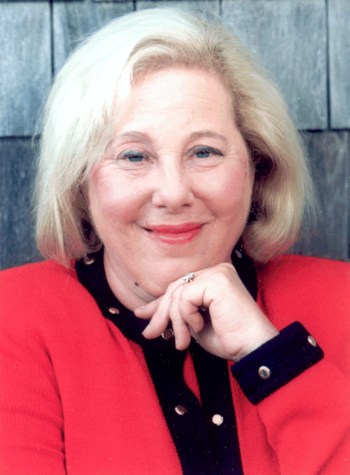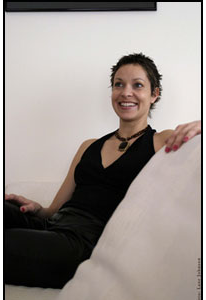Connect with Gloria!
Bring Gloria to Speak
Featured Upcoming Event
Wednesday, Oct. 2-Nov. 13, 2013 Gloria will teach a 6-week online course "9 Practical Leadership Power Tools to Advance Your Career". This is a Take The Lead event in partnership with Arizona State University Online. Participants will receive a certificate to enhance their resumes along with practical skills and understanding of power dynamics in the workplace. Don't miss this opportunity and register today!
More events here.
Buy Gloria’s Latest Book
-
-
-
Accolades

"With heartfelt encouragement ... (including strategies for including men in feminist causes), this guide is accessible to all."
~Publisher's Weekly
 "Female Writers Kicking Up Literary Dust"
"Female Writers Kicking Up Literary Dust"
~Women's e-News"Top 30 Political Mom Bloggers"
~The Stir"Gift Ideas for the Change Agents on Your List"
~Claire Mysko"Feminist Reading List"
~Deep Muck Big Rake"5 Must-Read Books for Women"
~Hello LadiesRead additional Media Buzz here.
-
Recent Posts
Recent Comments
- Gloria Feldt; An Inspiring Woman » CreativeBizHub on She’s Doing It: LisaBeth Weber Pins Pack Message Wallop
- Gloria Feldt on Stuck? Meet Jake and the Power of Letting Go to Move Forward
- Leslie on Stuck? Meet Jake and the Power of Letting Go to Move Forward
- Liz @ Creative Liberty on Sandberg: Are You Bossy or Merely Showing Leadership Skills?
- Gloria Feldt on Sandberg: Are You Bossy or Merely Showing Leadership Skills?
Categories
Listen to My Podcasts

Stacey Gualandi of The Women's Eye interviewed me about--what else--women and power.
Shelley Irwin of NPR asks me why I believe that no one is holding women back but themselves.
Suzanne Braun Levine and I discuss No Excuses on The Fiesty Side of Fifty on Blog Talk Radio.
Nicole Sanders talks to me about No Excuses on her show Radio or Not, on Progressive Talk Radio.
Dennis Lambert of KJZZ's "Morning Edition asks me why I wrote No Excuses.
Talking to Terry Hernon MacDonald about No Excuses over at Single Women Rule.
Discussing No Excuses with Joe Conason on Book Talk Radio.
Talking with Amanda Marcotte on RH Reality Check about women and power.
See Jane Do interview, encouraging women to step into positions of power and leadership – now!
Speaking with MadamaAmbi about No Excuses
Women's Relationship to Power and Leadership
Define Your Own TermsWomen’s History Month: How Rosabeth Moss Kanter Led the Way for Women in the Workforceby Gloria Feldt on March 25th, 2013in Define Your Own Terms, Know Your History, Leadership, Power, Power Tools, She's Doing It I remember how excited I was to discover Rosabeth Moss Kanter in the early 1980’s. She was one of the few females writing about leadership and organizational change management. I hungrily devoured The Change Masters as a relatively new nonprofit CEO navigating roiling changes in the healthcare and political landscape while learning to lead a complex organization toward continued growth. This distinguished Harvard Business School professor’s influential theories about change in the workforce have permeated much of the thinking about organizational change. And unlike the men writing and teaching about it, Kanter infused her work with a lens on one of the biggest workplace changes of the 20th century: women breaking through workplace glass ceilings. Kanter, former editor of Harvard Business Review and author of 18 books, has been named one of the “50 most powerful women in the world” by the Times of London, and the “50 most influential business thinkers in the world” by Accenture and Thinkers 50 research. Her groundbreaking book Men and Women of the Corporation—I mean, who had ever mentioned “women” and “corporations” in the same book title?—remains a classic analysis of power distribution within organizations. Kanter told the hard truth about women in the workforce, after conducting a five-year study on the American manufacturing company. She explained how women were tokenized to work in clerical jobs rather than management; and how even though there were plenty of women in large organizations, they rarely ran the show. She observed that the first women breaking through to leadership roles were still tokens in a male dominated workforce. Read the full article...{ Comments Off on Women’s History Month: How Rosabeth Moss Kanter Led the Way for Women in the Workforce comments }
Join The Conversation: Is It Time To Lean In To Feminism?by Gloria Feldt on March 18th, 2013in Define Your Own Terms, Leadership, Power, Power Tools, Workplace
Join this Cross Generational discussion about where Feminism is and where it’s going.
 Our Panelists include YOU and: Gloria Feldt– Past President of Planned Parenthood and Author of No Excuses: 9 Ways WOMEN Can Change How We Think About POWER Emily Bennington – Author of Who Says It’s a Man’s World? Eva Swanson – Student and Women’s Advocate at the College of William & Mary Dana Theus – Founder, InPower Women (Moderator) { Comments Off on Join The Conversation: Is It Time To Lean In To Feminism? comments }
She’s Doing It: IntergenFem and You…Join In!by Gloria Feldt on January 23rd, 2013in Create a Movement, Define Your Own Terms, Employ Every Medium, Leadership, She's Doing It, Tell Your Story
Intergenerational feminism. Does it exist? Can we do a better job? Why does working together across differences (generation is just one of many, including race, class, gender, sexuality, ability) matter for the cultural and political goals feminists are looking to achieve? These conversations keep happening, and the idea for this TweetChat grew out of a great conversation that happened spontaneously on Twitter between @AndreaPlaid, @erintothemax, @ShelbyKnox, @StephHerold, @veronicaeye and @WentRogue. Along the way we picked up @GloriaFeldt and now we’re hoping to pick up YOU (yes, YOU are enthusiastically invited!) to join us for a broader conversation that is intended to be productive, solutions-oriented and totally helpful to your personal and professional endeavors to realize justice in this lifetime. Some of the themes to discuss:
Is there more that needs to be discussed? Good. That’s another reason for you to join, so you can bring it up. TweetChat is Thursday, Jan. 31. Use the hashtag #InterGenFem. #InterGenFem + YOU = Join In!Be there 2-3 p.m. and tell your friends. Read the full article...{ Comments Off on She’s Doing It: IntergenFem and You…Join In! comments }
SheBrand Superstarby Gloria Feldt on October 19th, 2012in Define Your Own Terms, Leadership, No Excuses, Power, Power Tools
Name: Gloria Feldt Occupation: Speaker, Author, World Changer 1. What are three words that best describe your personal brand? { Comments Off on SheBrand Superstar comments }
She’s Doing It: Eve Ellis to Komen Leader Nancy Brinker: Relinquish Power for Realby Gloria Feldt on August 22nd, 2012in Define Your Own Terms, Leadership, Power Tools, She's Doing It Former Susan G. Komen for the Cure NYC board member Eve Ellis became devoted to the cause of finding a cure for breast cancer after her sister, sister-in-law, and one niece all battled breast cancer. They survived. But her other niece, Hally Yaccino Steiner, wasn’t so fortunate. She died of breast cancer 6 years ago at age 36. Every year since she became a Komen NYC board member in 2004, Ellis, a wealth advisor who lives in NYC with her spouse, theater producer Annette Niemtzow, raised money for them enthusiastically, and since 2006 she raised it to honor Hally’s memory. Every year until this one, that is, joining many thousands of people who have withdrawn their support for Komen since it created a tsunami of protest by discontinuing funding of Planned Parenthood at the behest of a politically motivated staff and board members. I wrote about the incident for the Daily Beast in case you need to review the gory details that saturated the media. In that showdown, at least for the short term, Planned Parenthood won. And recently, founder and CEO of the national Komen for the Cure Nancy Brinker stepped aside from her top leadership post, no doubt under severe pressure. However, she remains chair of the executive committee. So this year, instead of her annual appeal for funds, Ellis is asking people to sign this petition urging Brinker to step out of all powerful leadership roles. I signed the petition and hope you will too. If you have reservations, here are Ellis’s reasons why she hopes you reconsider: Read the full article...{ 1 comments }
She’s Doing It: Racing Champion Robyn Benincasa’s Leadership Essentialsby Gloria Feldt on July 18th, 2012in Define Your Own Terms, Inspiration, Leadership, Power Tools, She's Doing It
When we are faced with a challenge, whether it’s in sports, academic, business or relationships, many of us operate out of fear of failure. We focus our attention and efforts on not falling short, on trying to stay just one step ahead. But the greatest team builders think differently. Sure, they are cognizant of the possibility of failure, and they prepare to deal with the things that go sideways, but their main focus is on doing what it takes to win versus simply not lose. For Maximum Performance, Hope is a better place than FearWhen a team member gives up hope and says “it’s over. There is no way out for us,” brainstorming is shut down and entropy takes over our souls. That’s not to say we shouldn’t master the tactical agility to make a U-turn whenever necessary because that’s an important skill. But the best team builders can even position a U-Turn in a positive light, as merely a new set of challenges. Read the full article...{ Comments Off on She’s Doing It: Racing Champion Robyn Benincasa’s Leadership Essentials comments }
In Which I Reveal a Painful Salary (non) Negotiation Truthby Gloria Feldt on June 29th, 2012in Define Your Own Terms, Equal pay, Leadership, No Excuses, Power Tools
In this interview, Gloria encourages women to define their own terms: at meetings, “Say the first word, say the last word and establish yourself as an authority.” Meg McSherry Breslin: For women who feel frustrated and unable to move up in their companies, what are some concrete things they can do? Read the full article...{ Comments Off on In Which I Reveal a Painful Salary (non) Negotiation Truth comments }
Think Women Can’t Have It All? She Means Business Aims for Moreby Gloria Feldt on June 26th, 2012in Define Your Own Terms, ForbesWoman, Leadership, Power Tools There’s big buzz about Anne-Marie Slaughter’s article in The Atlantic rehashing the tired trope that women “can’t have it all.” Personally, I think, most people, male and female, would love to have this high-powered woman’s problems (She was the first female director of policy planning at the U. S. State Department and is currently a Princeton University professor, author, and public speaker with a professor husband who shares child raising responsibilities). All of life is about making choices. Everyone struggles. So I wish Slaughter, and others who lay the responsibility on women for difficulties we didn’t create, would quit whining already and tackle the real problems like pay inequity, implicit gender biases, and the need for structural change in the workplace so everyone can have a life and earn a living. That’s why I’m impressed with an extraordinary group of women venture investors and entrepreneurs at She Means Business. They’ve launched a new campaign that when funded will do far more to create new solutions than Slaughter’s public angst about her personal life choices. Read the full article...{ Comments Off on Think Women Can’t Have It All? She Means Business Aims for More comments }
She’s Doing It: Katie Couric’s Advice for Making Media Breakthroughsby Gloria Feldt on May 16th, 2012in Define Your Own Terms, Leadership, Power Tools, She's Doing It, Tell Your Story At the start of this video interview with Katie Couric, the first female major TV network evening news anchor, Katie politely but pointedly calls out interviewer Katie Corrado for introducing her initially as “the lovely Katie Couric.” Much like her interviewee, Corrado is perky and cute. She appears to be a generation younger than Couric. That Corrado needed to be called out is cause for concern about what lessons are being transmitted from one generation to another, and how the dominant cultural narratives imprint even an obviously intelligent young media professional. Fortunately, Katie’s willingness to apply No Excuses Power Tool #9 Tell your story, is the best antidote for those women whose consciousness needs to be raised about the remaining barriers to gender equality. Corrado then asked a stereotypically leading question about whether women compete or support each other in the cutthroat media business. Read the full article...{ Comments Off on She’s Doing It: Katie Couric’s Advice for Making Media Breakthroughs comments }
She’s Doing It: Kristal Brent Zook Defines Her Own Chaosby Gloria Feldt on March 28th, 2012in Carpe the Chaos, Define Your Own Terms, Power Tools, She's Doing It, Tell Your Story
|









